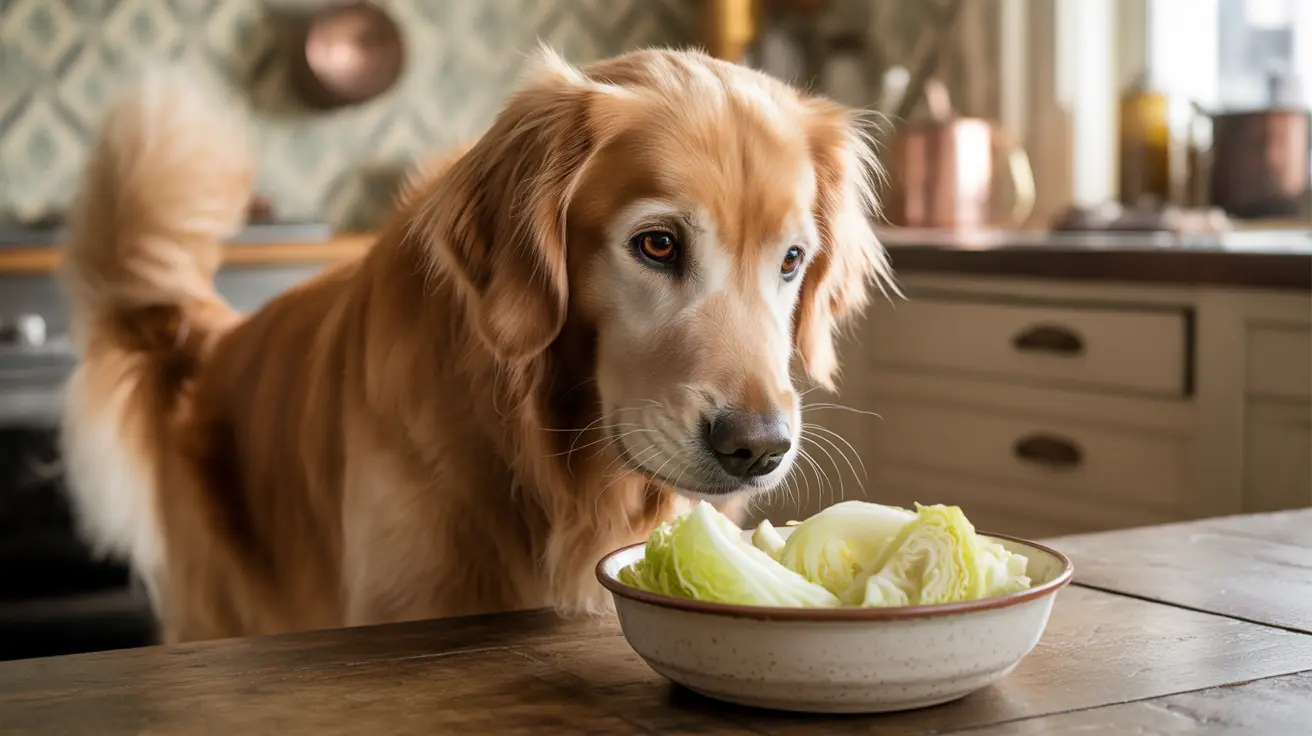Many pet owners wonder about adding vegetables to their dog's diet, and cabbage is often a topic of interest. As a nutrient-rich vegetable, cabbage can be a healthy addition to your dog's meals when prepared and served correctly. Let's explore everything you need to know about feeding cabbage to your furry friend.
Understanding the proper ways to serve cabbage to dogs, along with its benefits and potential risks, is crucial for maintaining your pet's health and well-being. This comprehensive guide will help you make informed decisions about incorporating cabbage into your dog's diet.
Can Dogs Eat Cabbage Raw? Understanding Safe Preparation Methods
While dogs can technically eat raw cabbage, it's not the ideal way to serve this vegetable to your pet. Raw cabbage can be harder to digest and may increase the risk of choking, especially in smaller dogs. Additionally, raw cabbage contains thiocyanate, a compound that can affect thyroid function if consumed in large quantities.
If you choose to serve raw cabbage, ensure you:
- Wash it thoroughly to remove pesticides and dirt
- Remove outer leaves that may be damaged or dirty
- Cut it into small, manageable pieces
- Introduce it gradually to monitor your dog's reaction
Can Dogs Eat Cabbage Cooked? The Preferred Method
Cooked cabbage is generally the safer and more beneficial option for dogs. Cooking cabbage makes it easier to digest and can help reduce the potential for digestive issues. Light steaming or boiling is the best preparation method, as it preserves nutrients while making the vegetable more digestible.
When cooking cabbage for your dog:
- Avoid using oils, butter, or seasonings
- Steam or boil until tender but not mushy
- Let it cool completely before serving
- Cut into appropriate portion sizes
Health Benefits of Feeding Cabbage to Dogs
Cabbage offers numerous nutritional benefits for dogs when served properly:
- Rich in vitamins C, K, and B6
- Contains beneficial fiber for digestive health
- Provides antioxidants that support immune function
- Low in calories, making it suitable for weight management
- Contains anti-inflammatory properties
Potential Risks and Serving Guidelines
While cabbage is generally safe for dogs, there are some important considerations:
- Start with small portions to avoid digestive upset
- Monitor for excessive gas, which is common with cabbage
- Limit portions to 1-2 tablespoons for small dogs and 2-3 for larger dogs
- Avoid feeding daily; treat it as an occasional supplement
- Consider your dog's individual health conditions
Frequently Asked Questions
Can dogs eat cabbage raw or does it need to be cooked before serving?
While dogs can eat raw cabbage, cooking it is recommended for better digestibility and nutrient absorption. Steaming or boiling makes it safer and easier for dogs to process.
What types of cabbage are safe and most nutritious for dogs to eat?
All common varieties of cabbage are safe for dogs, including green, red, savoy, and bok choy. Red cabbage is particularly nutritious, containing higher levels of vitamins and antioxidants.
How much cabbage can I safely give my dog and how do I prepare it for them?
Small dogs should receive 1-2 tablespoons per serving, while larger dogs can have up to 3 tablespoons. Always cut the cabbage into small, manageable pieces and cook it plain without seasonings.
Are there any health risks or side effects of feeding cabbage to dogs?
The main risks include excessive gas, potential thyroid issues with overconsumption, and digestive upset if introduced too quickly. Some dogs may also be more sensitive to cabbage than others.
What are the benefits of adding cabbage to my dog's diet, and should it be given daily or as an occasional treat?
Cabbage provides vitamins, fiber, and antioxidants beneficial for dogs' health. However, it should be given as an occasional treat rather than daily to prevent potential digestive issues or thyroid problems.
Remember to always consult with your veterinarian before making significant changes to your dog's diet, especially if your pet has existing health conditions or dietary restrictions.






